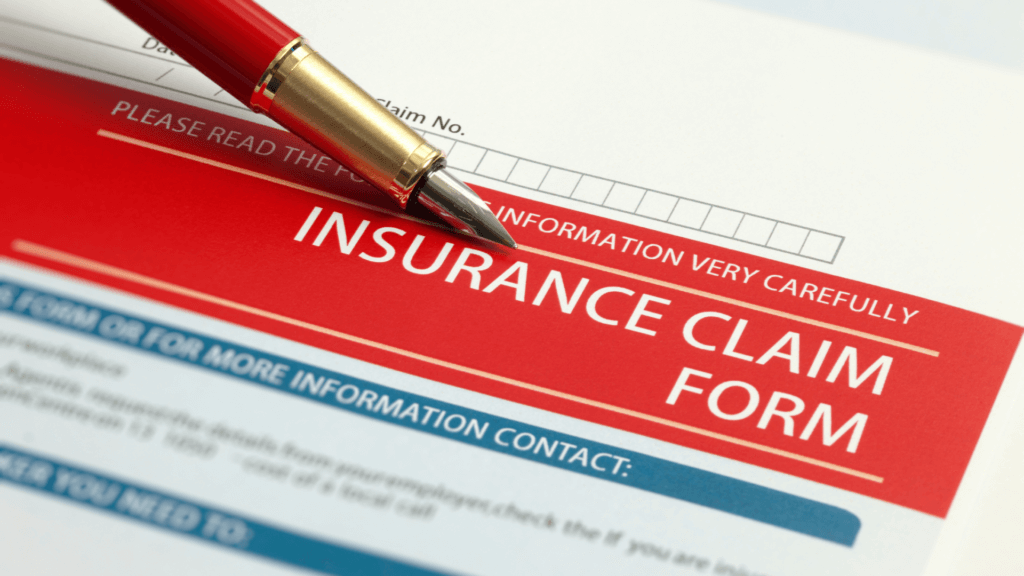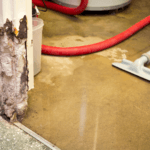
Obtaining a commercial property insurance policy is an important part of owning and operating a business. When an unexpected event results in property damage, owners should feel at ease knowing that their investment is protected by insurance. In certain situations, however, insurance claims – even those that are valid – can be denied. When this happens, it can leave business owners wondering what their options are and how they can fully recover from a major loss.
What To Do After a Commercial Property Insurance Claim is Denied
Commercial property insurance offers protection for the physical location of a company and its contents against incidents that could result in significant financial losses to business owners. This coverage supports the insured business against theft, acts of vandalism, water and fire damage, and various natural disaster events that can result in major setbacks for the entity. Depending on the extent of coverage, commercial property insurance will cover the repair or replacement of the damaged property and can be used to reimburse the business for loss of income.
It is important to note that insurance providers have a duty to act in good faith when handling claims, including commercial property insurance claims. By law, insurers are required to carefully investigate claims and pay them timely in a way that does not prevent the insured’s ability to receive the benefits due under their policy. To comply with this promise to act in good faith, the insurer must adhere to certain duties. These can include the duty to adequately and accurately communicate with the insured regarding their claim as well as the duty to adhere to claim deadlines. An insurer will ultimately be acting in bad faith if it fails to meet its duties unreasonably and without proper cause.
When a commercial insurance claim is denied, it can leave business owners wondering what their options are and how they can fully recover from a major loss. Luckily, there are several steps policyholders can take to properly handle a claim denial and move toward getting the compensation they are owed, including:
Review all Claim Notifications
One of the most important things to do during and after an investigation into a claim is to review all notifications on the claim and correspondence with the insurance provider. Some notifications can indicate whether the claim has been paid in full, or is delayed, partially paid, or denied. If the claim has been contested, the carrier should provide instructions on how to resubmit or appeal it. In the event the claim is partially paid or denied, the insurer’s notification should specify the reasoning why.
Submit an Appeal
If a policyholder believes a claim denial is improper, appealing the decision based on the carrier’s requirements is often the best course of action. During this process, it’s important to know the exact information the insured needs to submit with the appeal. This is because appeal procedures can vary depending on the insurance provider and state insurance laws.
The reason why a claim is denied is often more complex and subject to interpretation than one may think. This is especially true when it comes to complex property losses covered by a commercial property insurance policy.
An appeal should include an explanation for the appeal along with necessary supporting documentation, such as a copy of the initial claim and copies of all relevant communications with the insurer. Presenting any new information or discoveries regarding the claim or cause of damage can also help with the appeals process. New information can include details that may not have been previously known or that were discovered by hiring an independent public adjuster and/or retaining legal counsel. Presenting this information while making an argument as to why the claim should fall under the policy terms can increase a policyholder’s chances that the appeal will be accepted.
Appeals may need to be filed more than once to reverse the insurance company’s decision and / or to make them reexamine the claim in its entirety. Persistence is important for demonstrating to the insurer that the policyholder is serious about only resolving the claim once they receive the proper payment.
When to Hire an Insurance Claim Attorney
Having a valid commercial property damage claim be wrongly denied can be incredibly frustrating for policyholders who have paid for a specific type of coverage from their insurance company. In these instances, business and commercial property owners will often need professional legal help to obtain what they are rightfully owed under their insurance policies.
Commercial property damage claims are typically more complex and costly due to the size of the properties. In these cases, there is often a higher chance for a dispute to arise between the insurer and the insured on the amount of the claim. Some instances where obtaining legal counsel for an insurance claim would be necessary include when:
- The policyholder and the insurance company don’t agree on the value of a claim
- Claims are large, expensive, and/or complex, which can be due to the size of the property, the amount of damage, and / or the type of damage
- The insurance policy contains an arbitration clause
- Causation is disputed
- Claims have been denied
When to hire an experienced insurance attorney depends on a variety of factors. In Texas, the Prompt Payment of Claims Act provides specific deadlines within which insurance companies must evaluate claims. Further, it is important for policyholders to be mindful that once a certain amount of time has passed, they may lose the right to pursue legal action. While an insurance policy typically states how long this time period is, there are also statutory time periods or statutes of limitation that dictate how long you have to bring certain claims. For example, under Texas law, claims for the breach of duty of good faith and fair dealing, as well as violations of the Texas Insurance Code must be brought within two years after the cause of action accrues. The default limitations period for breach of an insurance contract is four years from the day the cause of action accrues.
However, the most important factor is when it becomes obvious that there is some type of dispute. This may be clear when the insurance company denies a valid claim, significantly underpays the value of a claim, or the insurance company or adjuster is simply unresponsive to delay the claims process. These events are common, but in recent years insurance companies have engaged law firms during the claims process—sometimes well before there is a known dispute. Though the purpose is not always clear, this trend should alert policyholders that the insurer may be acting on the advice of legal counsel. In response, it may be beneficial for property owners to do the same and seek the advice of an experienced insurance attorney. That way policyholders can take comfort in knowing their lawyer is working in their best interest during the claims process.
Commercial Property Insurance Claim Attorneys
If you are a commercial property owner that has had a valid claim for covered property damage be wrongly denied by your insurance provider, the insurance coverage attorneys at Raizner Slania can help. Our lawyers have successfully handled large, complex insurance disputes against every major insurance company, and possess the intellectual and financial resources necessary to succeed in today’s complex litigation environment.


